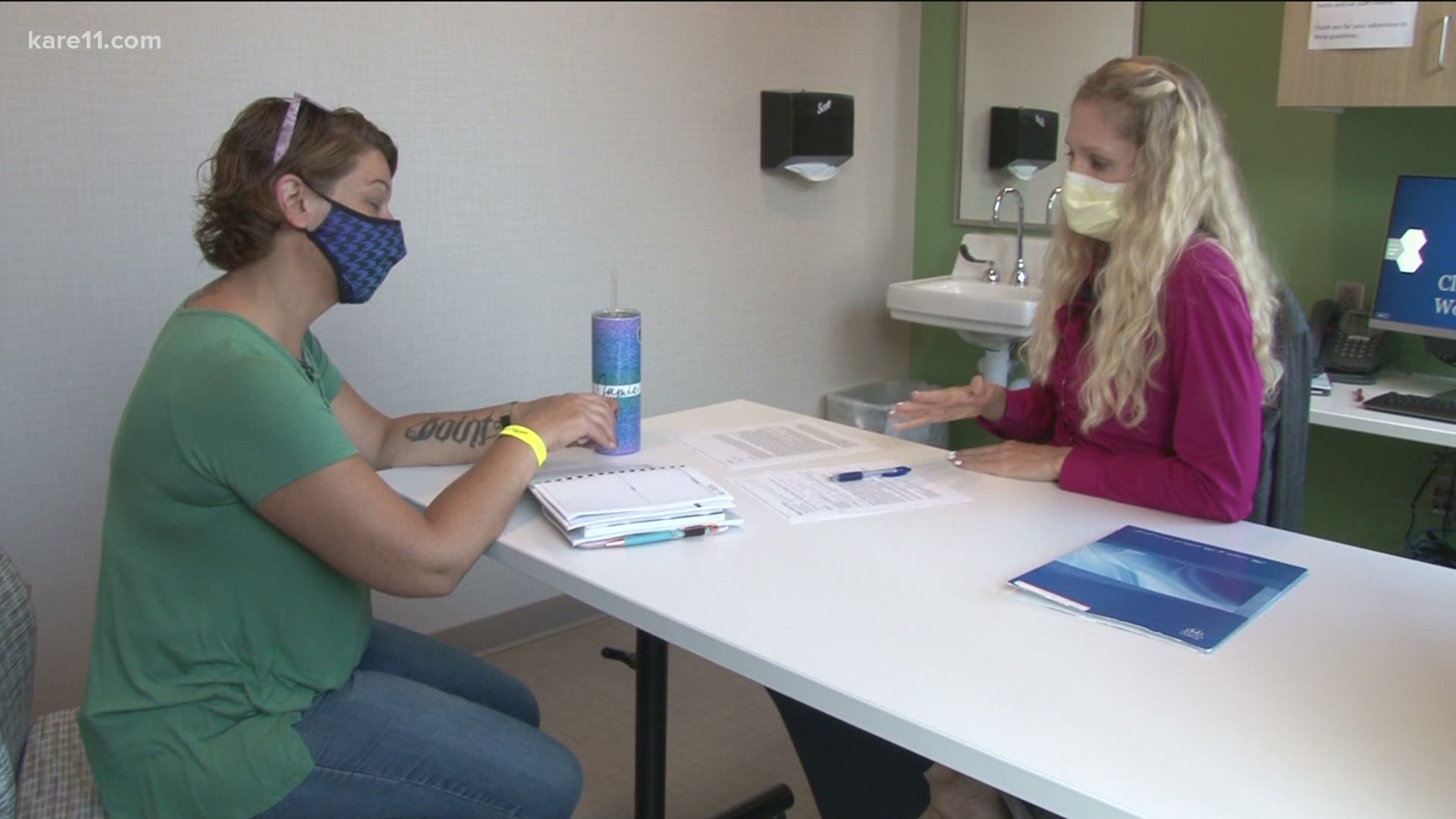ROCHESTER, Minn. — Jamie Sager never thought her relatively mild case of COVID-19 in February would result in regular visits to the Mayo Clinic.
But in late June, she sat in a Mayo treatment room with an occupational therapist going over the calendar where she makes notes of things she might not remember.
"You can't remember the simple, small things," she said of her condition. "My calendars were full, just because I didn't want to forget the small things."
It's a strange symptom of COVID-19. Some people who get it experience a sort of "brain fog" for months after their initial infection.
Mayo's COVID Activity Rehabilitation Program (CARP) treats post-COVID patients, sometimes referred to as COVID-19 "long-haulers." They are people who have lingering symptoms for months. According to Mayo Clinic, about 45% of its CARP patients experience brain fog.
Now, some of those patients are being referred to Mayo's brain rehabilitation clinic, ordinarily used to treat people with concussions or other forms of brain injury.
"We don't have a lot of data yet...about what's the best treatment strategy or what's going to work best for these [post-COVID] patients," said Dr. Billie Schultz, with Mayo's Department of Physical Medicine and Rehabilitation. "So we're taking patients that have similar difficulties and modeling our care based on those patients. So, concussion."
Sager still gets severe headaches, in addition to having trouble remembering.
"My husband and I were talking about ordering some stuff, and I had my phone and the word Amazon was right there," she remembered. "I looked at him and I was like, it didn't connect...I just could not get [the word] out of my mouth."
The appointments teach Jamie how to manage and compensate for her brain fog, as she wonders when the day will come when she won't have to.
"I want my life back," she said. "And I don't know when or if it will ever be the same."
Dr. Schultz said patients are getting better, but it can be a tough process because there is no timeline for when they'll be completely recovered.
Jamie told us she's getting better, too. However, her symptoms are still bad enough that she hasn't been able to work full-time since February when she got COVID.

